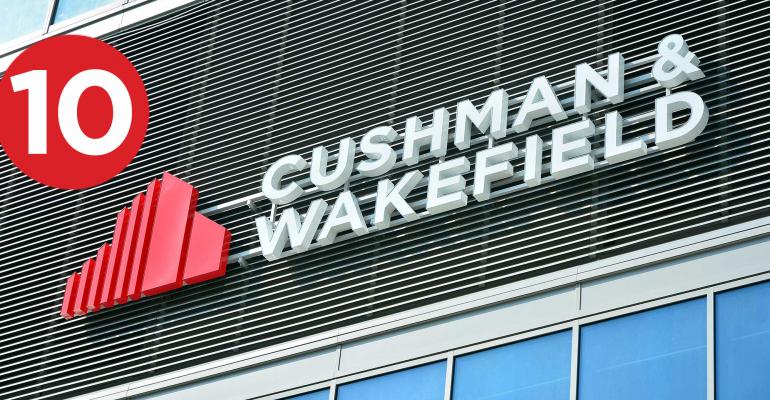- Cushman & Wakefield to Buy 40% Stake in Greystone Multifamily Business for $500 Million “Cushman, a firm founded more than a century ago that has about 400 offices in 60 countries, has been a major player in the rental apartment brokerage business, representing sellers in more than $11 billion of deals last year. The deal with Greystone marks an expansion by Cushman into the business of making loans to buyers and owners and servicing those loans.” (The Wall Street Journal)
- As Borders Reopen, New York Wants Foreign Tourists Back, and Fast “Before the pandemic, tourists spent $47 billion annually and supported more than 280,000 jobs, according to official estimates. About half of that spending came from international visitors, though they accounted for just 20 percent of all visitors. This year, the city’s tourism agency forecasts visitor spending of about $24 billion, half of the 2019 total.” (The New York Times)
- Panic ordering by retailers is making the supply chain crisis ‘even worse’ “As the holiday season approaches, those in the supply chain industry have warned that there’s likely to be a shortage of goods, or prices will rocket due to high demand and low supply. The supply chain crisis is expected to hit growth worldwide, with the International Monetary Fund cutting its global growth forecast last week. It cited supply chain disruptions in advanced economies as one of the factors.” (CNBC)
- More Than Half of U.S. Consumers Planning Holiday Shopping Early “Major retailers are meeting them on the other side of the transaction, with some already starting holiday promotions, including Best Buy and Target, and experts aplenty advising shoppers to hit their gift lists early or risk disappointment. The findings from the Oracle Retail survey were similar to those from NPD Retail, which found 51% of U.S. consumers planned to start holiday shopping before Thanksgiving, a slight increase from 2020.” (Multichannel Merchant)
- The World’s Biggest Real Estate Bubbles in 2021 “The map above, based on data from the Real Estate Bubble Index by UBS, serves as an early warning system, evaluating 25 global cities and scoring them based on their bubble risk.” (Visual Capitalist)
- Property Management Historically Has A 33% Turnover Rate. The Pandemic Hasn’t Helped “Property management has traditionally struggled with worker retention — research by the National Apartment Association estimates the pre-pandemic turnover rate was an astronomical 32.7%, multiple times higher than other industries. Not surprisingly, the pandemic and resulting shifts around how we live and work haven’t helped.” (Bisnow)
- Waiting on U.S. Mandate, Some Nursing Homes Are Slow to Vaccinate Staff “The Biden administration has said that nursing homes could face a loss of government funding — the industry heavily relies on Medicaid and Medicare funds — if they do not comply, but the regulations for enforcement of a mandate have yet to be disclosed.” (The New York Times)
- Inflation Is Approaching a Tipping Point at the Grocery Store “Inflation is now so hot that staples companies feel they have no option but to pass it on. Nestlé, Danone and Procter & Gamble all said this week that consumers can expect higher bills at the grocery store. The question is how far they can push before shoppers defect to cheaper brands or buy fewer items.” (The Wall Street Journal)
- City Planning votes to restrict hotel development “Commissioner Alfred Cerullo said he ‘reluctantly’ voted in favor of the proposal, calling the decision a ‘land use Sophie’s choice.’ He noted that a report prepared by City Planning, not yet publicly available, laid out a ‘roadmap to why it should be approved.’ He acknowledged his previous criticism of the plan, saying that ‘the land use rationale was questionable at best,’ and ‘the underlying motivation suspect.’” (The Real Deal)
- What Life Companies’ Faith in Industrial Means for Borrowers “Multifamily is a primary asset class with its own set of fundamentals and attractive qualities, but lenders recognize that industrial properties have become the home of the modern economy’s primary engines: logistics and e-commerce. They know that is not going to change.” (Commercial Property Executive)
0 comments
Hide comments





